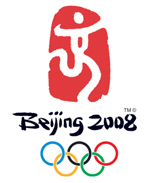
“Beijingers were warned to stay indoors on Thursday as pollution levels across the capital hit the top of the scale, despite repeated assurances by the government that air quality was improving.
“This is as bad as it can get,” a spokeswoman for the Beijing Environmental Protection Bureau told AFP.
“Level five is the worst level of air pollution. This is as bad as it has been all year.”
According to the bureau’s website, 15 out of the 16 pollution monitoring stations in urban Beijing registered a “five” for air quality rating.
The main pollutant was suspended particulate matter, which is usually attributed to coal burning and automotive exhaust.
“Old people and young children should reduce outdoor activities and protect their health,” the spokeswoman said.
The Beijing Evening News warned residents not to do their morning exercises on Friday as pollution levels were likely to linger over the capital until a cold front moved in and blew some of the bad air away later in the day.
A lack of wind in the capital over recent days has led to a heavy cover of smog trapping in the pollutants, the paper said.
By nightfall, the pollution was still horrendously thick.
Beijing’s air quality is routinely rated among the worst in the world by international agencies such as the United Nations and the World Bank, with rampant coal burning, regular dust storms and a growing number of cars cited as the main reasons.
The head of the government’s information office, Cai Wu, told reporters on Thursday that Beijing’s environment was improving and they should have “full confidence” that the Olympics would be pollution free. ”
hard to believe, mr. wu… !
(from physorg.com, image by princess pie on flickr – the image is from february 2007.)





